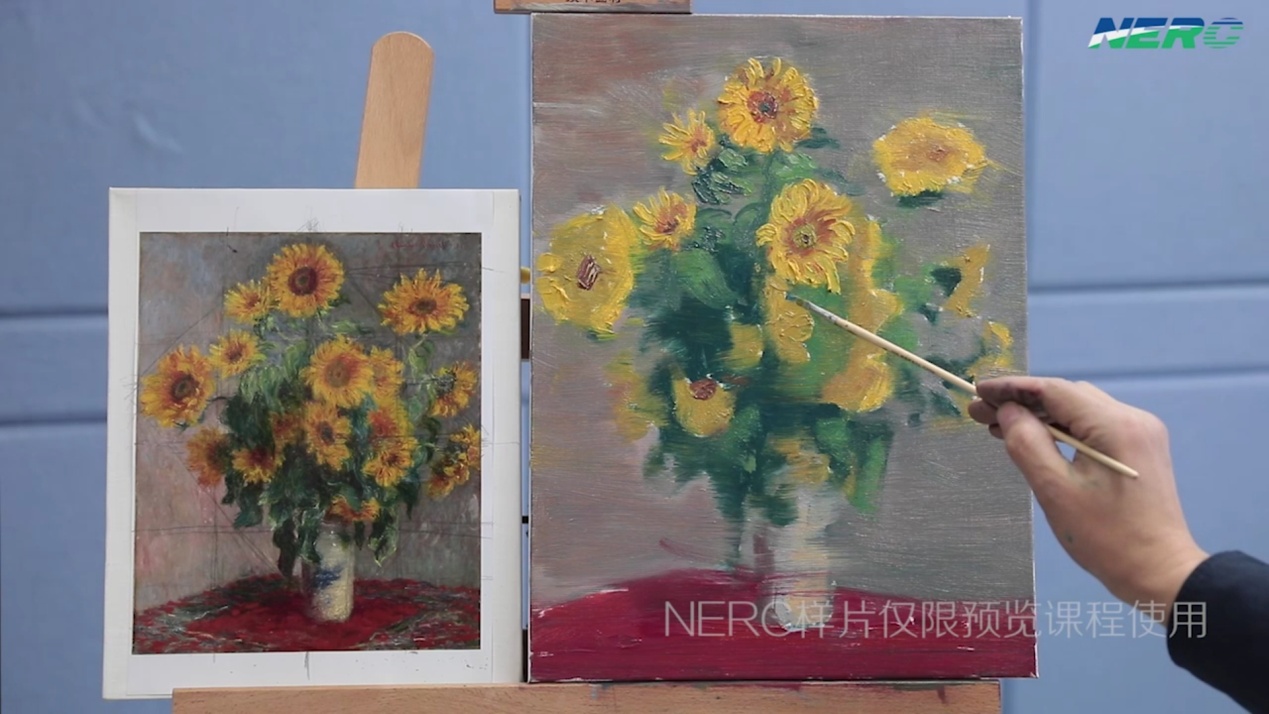 "Thank you, Professor Tang and Mr. Liu. It was you who brought us into the colourful world of oil painting this April!
"Thank you, Professor Tang and Mr. Liu. It was you who brought us into the colourful world of oil painting this April!

You have turned us from oil painting beginners, bystanders, yearners, and admirers into talented painters who can reproduce the masterpiece of many famous painters and create our own works!" Ning Ying, a student from Heilongjiang, said, expressing her gratitude for the online oil painting class launched by the OUC. Hundreds of other students from all over the country and all walks of life were also excited by this class.
From 1-28 April 2019, the Digital Learning Resource Centre of the Open University of China (OUC) launched a WeChat-based oil painting course themed "Pay Tribute to Monet.” The course is designed for adults who have no foundation in art but love oil painting. They can enjoy high-quality lecture videos, lectures from high-level professional teachers, and one-stop teaching support services. They can use their spare time (at noon, in the evening, at the weekend, or ay any other time they find convenient) to learn and do homework. Week after week, the students improved quickly, so much so that they couldn’t believe it themselves. In less than a month, they created four oil paintings that impressed everyone around them. The "Pay Tribute to Monet" WeChat oil painting course has achieved significant effects and has a good reputation. What is it like? Let's go and see.
What is a WeChat mini programme course like?
Most of the WeChat mini programmes that we are familiar with are games, deliver apps, and other day-to-day life services. This is the first time for many people to find out that they can take a class through a mini programme! The "Pay tribute to Monet" oil painting course was realised through a WeChat mini programme, offering students great convenience. Nowadays, mobile phones are the most frequently used tools for people to communicate with each other and the most popular app for that is WeChat. Therefore, WeChat offers an easy and convenient way to study oil painting for people of all ages and in different industries. Access to resources for anyone at anytime and anywhere is the main advantage of online education and the WeChat mini programme course is a demonstration of that.
The course is small but complete. The interface of "Pay tribute to Monet" oil painting course is clear and concise, and simple to operate. The mini programme includes the "Student Manual", “Explanation of Tools", "Q&A", "Preview Course", and four-week main course.
The course is open on a daily basis and moves through picture analysis, drafting, colour processing, large colour blocks, and depth characterisation. The students can complete one piece of work after one-week learning. The teaching is carried out step by step and has achieved remarkable results.
What are the characteristics of the teaching content?
Ordinary art classes usually start from sketching a cube or drawing a bottle or can. This kind of teaching may be suitable for exam-oriented art training, but for an adult art lover or an ordinary viewer without any painting foundation, they may find it dull to start drawing these objects. "Beautiful" is often the first thing that comes to mind when someone sees an oil painting. This kind of beauty may be reflected in its profound theme, its physical appearance or its accurate modelling. Therefore, drawing from the classical works of impressionists (such as Monet) may sound novel and appealing to adult learners.
This course selected four of Monet's works: “Impression, Sunrise,” "Haystacks in the Sunlight, Midday,” “Poplars," and “Sunflowers." The instruction progressed from a low to a high level. Under the guidance and unique teaching experience of Professor Tang Yingshan, the students did not fail to fulfil their tasks even when the assignments became increasingly difficult. The completion of the fourth piece of work has generally increased.
What is a "one-stop" learner support service?
Compared with face-to-face courses, online education has a disadvantage in terms of communication. The teachers, tutors, and students cannot realise face-to-face communication. It is difficult for teachers to answer students' questions in a timely manner and there is also a lack of communication and interaction between the students. Based on years of experience in the exploration of distance art education, the "Pay tribute Monet" oil painting course has established a set of support service systems, effectively ensuring the quality.
Convenient admission: At the registration stage, there is an Admission Assistant who is responsible for consulting, answering questions, sending paper samples, and helping to purchase or recommend painting tools. This offers great convenience for students who want to register for the class.
Support for interaction: After the class is formed with a specific number of students, a counsellor will establish a class WeChat group where course announcements can be released, the tutors can collect and answer questions, and the students can submit their homework and carry out daily communication and discussions.
Q&A: Tutors have a fixed time for answering questions, but the forms they can take are varied. They spend two hours answering students' questions every night from Monday to Friday, mainly resolving the problems that the students met during the self-teaching process. They will also make comments on the students' homework and provide guidance for them. On Sundays, the lecturer holds a live video conference, creating a face-to-face environment. They also add some extra lectures on colour knowledge in order to convey aesthetic ideas through homework analysis. This way of teaching has shortened the distance between the lecturer and the students, stimulating the students' learning interest.
Innovation management: The long-standing problem of WeChat group interaction is that all the students in the group session are eager to get a word in, creating a lot of disorderly information. This not only makes it difficult for the tutor to answer each question clearly, but its is also inefficient for students who are trying to find useful information and after-class review. To solve this problem, the tutoring design for this course includes "answering rules", that is, the questions should be prepared by the students before the Q&A session. Each question raised by the students is numbered sequentially and the extended question concerning the previous one already raised by other students should also be numbered sequentially. Therefore, the questions are always in the forefront, which stops any questions being missed due to the redundant messages in the WeChat group discussion.
Accumulate resources: The course has established a "Learning Resource Library" WeChat group and accumulated learning resources. Due to time and cost limitations, it is difficult to publish paper textbooks for such a small-scale online oil painting course. However, a lot of useful knowledge and experience will still be generated during the process of teaching and learning. If they aren’t organised and collected carefully, they will be forgotten and the learning effect may not be consolidated. The "Learning Resource Library" WeChat group collects the questions and sorts the valuable professional information in the discussion and then publishes it in this group. Students are not allowed to speak in this group, which enables it to become a small library that is compatible with the courses for students to inquire and review.
Group learning: The students help each other and learn from each other, demonstrating the group characteristics of painting learning. When learning painting, one-on-one learning is not necessarily better than group learning. In order to achieve group learning in the WeChat course, the first session of the "Pay tribute to Monet" oil painting class set up a class committee and established a rotating class committee and a mutual support system. The committee members are those who actively contribute, perform well, and are willing spend some time and energy to serve everyone. When the students in the group ask questions or submit homework, the class committee on duty will address the questions based on their own knowledge and experience, creating a positive atmosphere of mutual help and progress. Practice has shown that in the third week and the fourth week, the painting level of the students has generally increased substantially. This is closely related to the characteristics of "group" painting study. The students paint together, share their homework, feelings, and experiences, learn from each other, and make mutual progress. They have made remarkable progress.
What is the effect of the course?
The recognition of the learners is better than any medal or prize. According to results of the after- class questionnaire, 70 percent of the students who attended the "Pay tribute to Monet" oil painting class are “satisfied” with the course design. Of these, more than 50% of are "very satisfied.” Their satisfaction with the learner support services is as high as 80%. More than 60% of them are "very satisfied" with learner support services. 90% of the students felt that the course had met their expectations in terms of the overall experience and they got a lot from it. The most gratifying thing is that 100% of the students said that they would continue to participate in similar courses in future and would be willing to recommend this course to others.
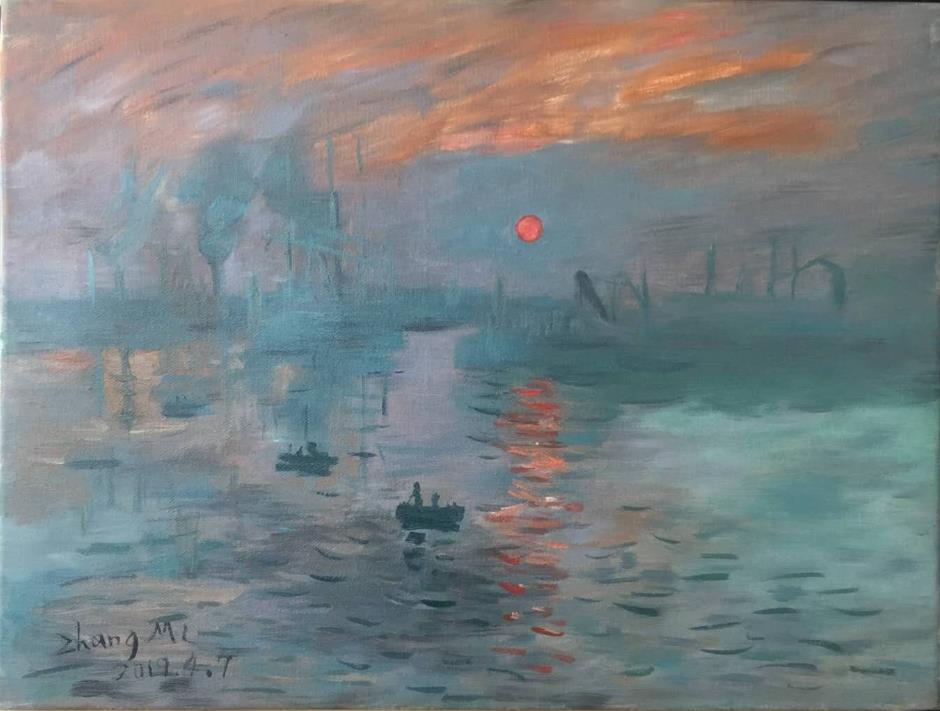
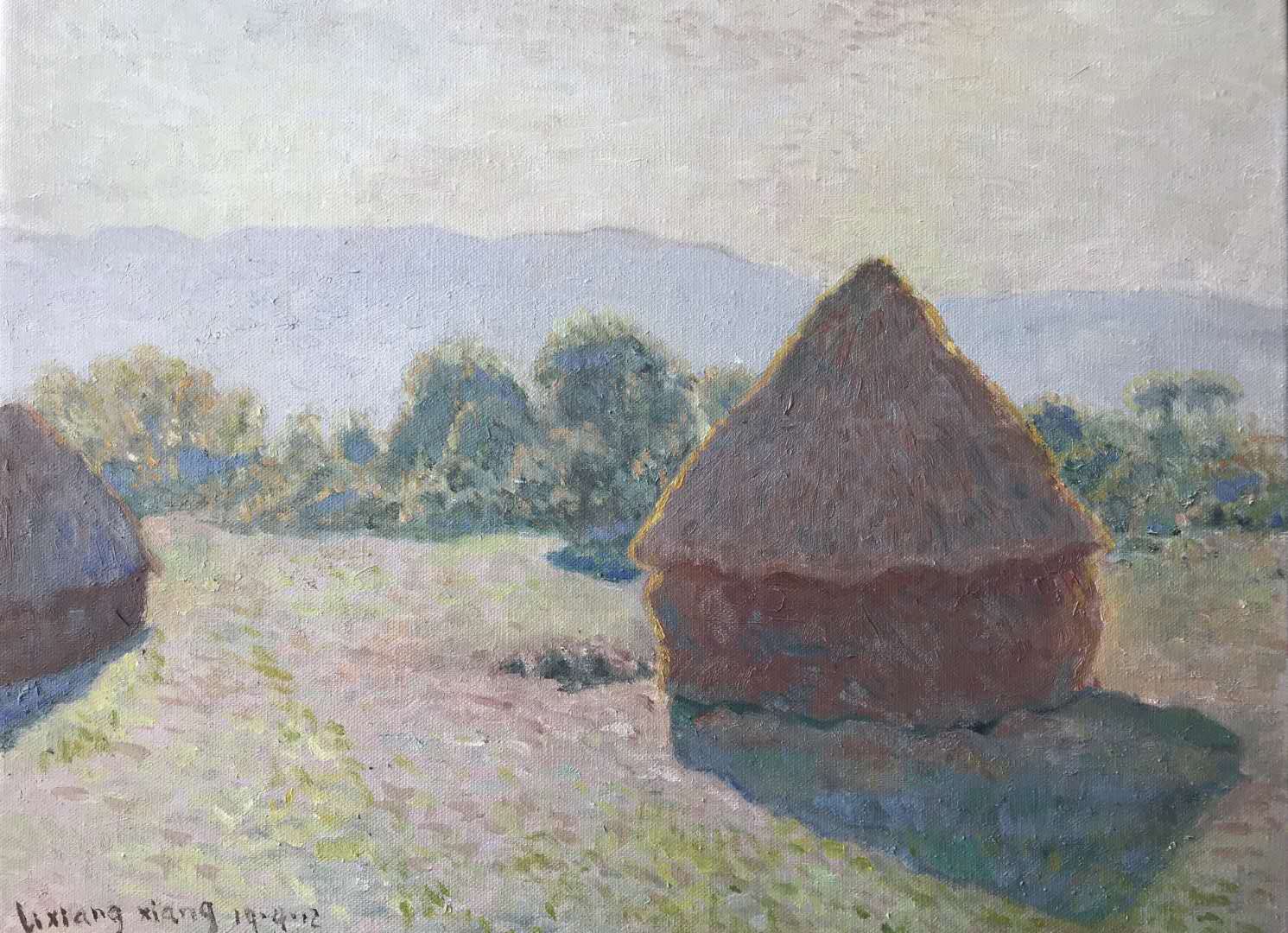
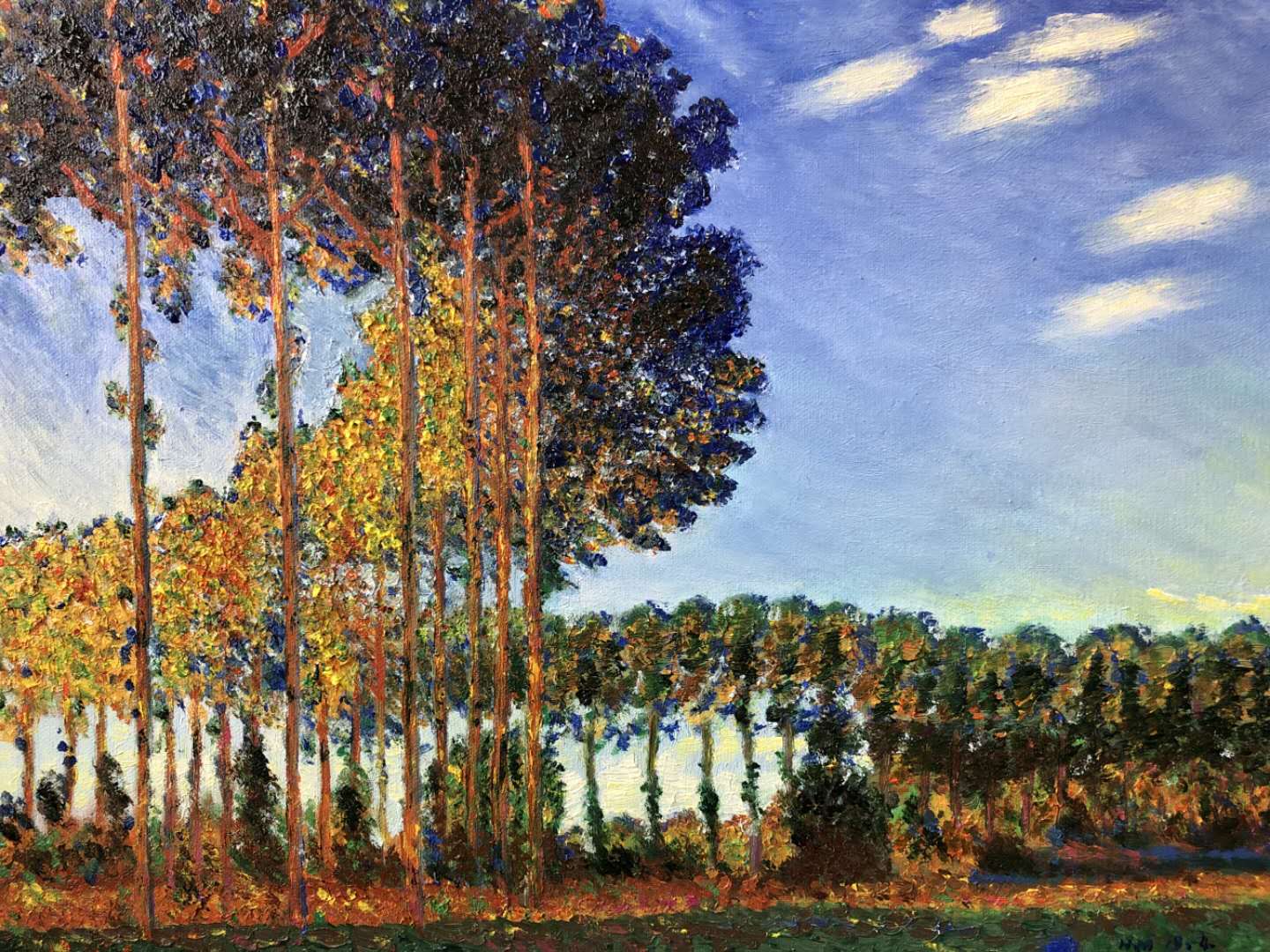
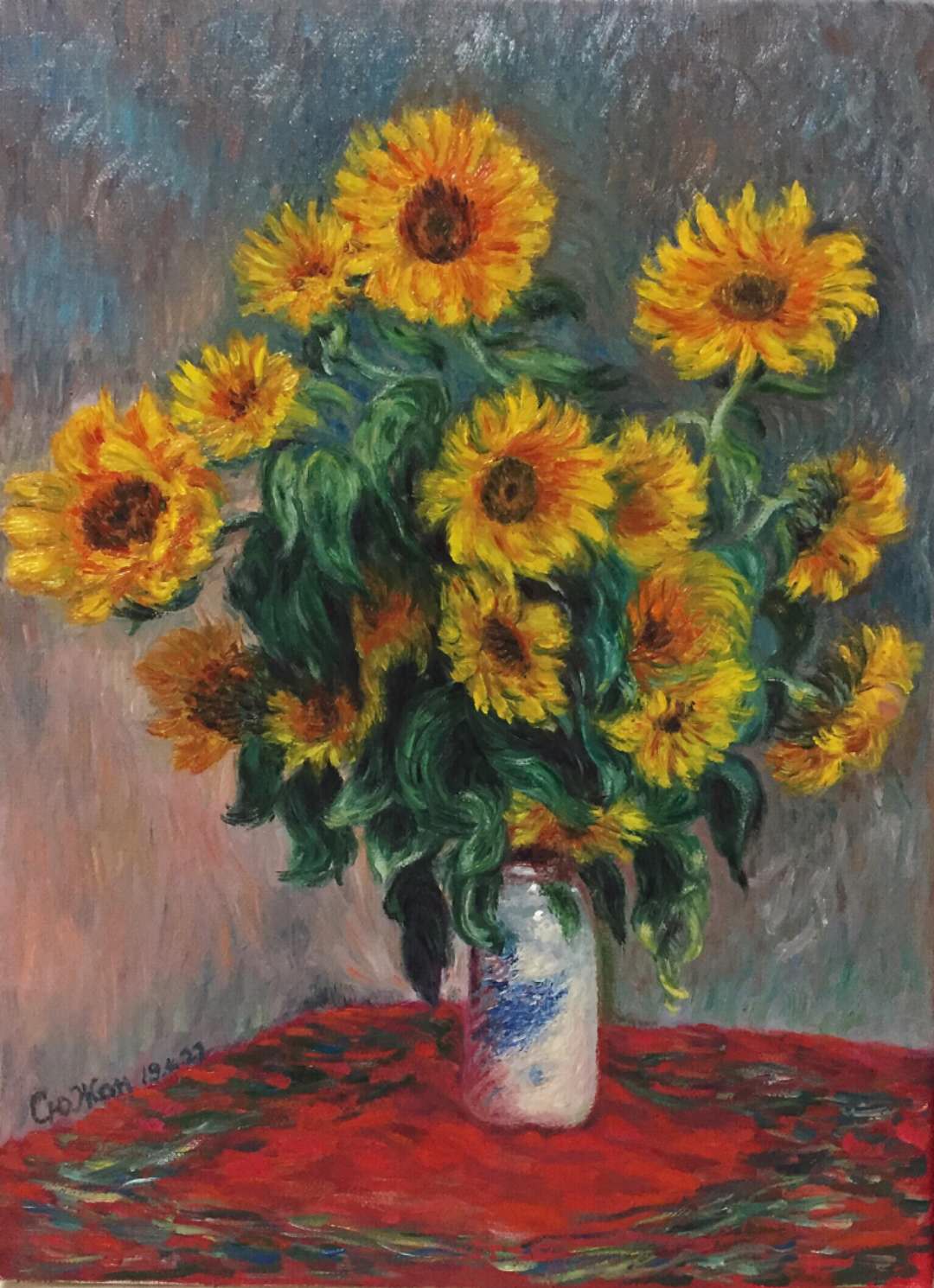
By Xu Xiaoxiao, OUC